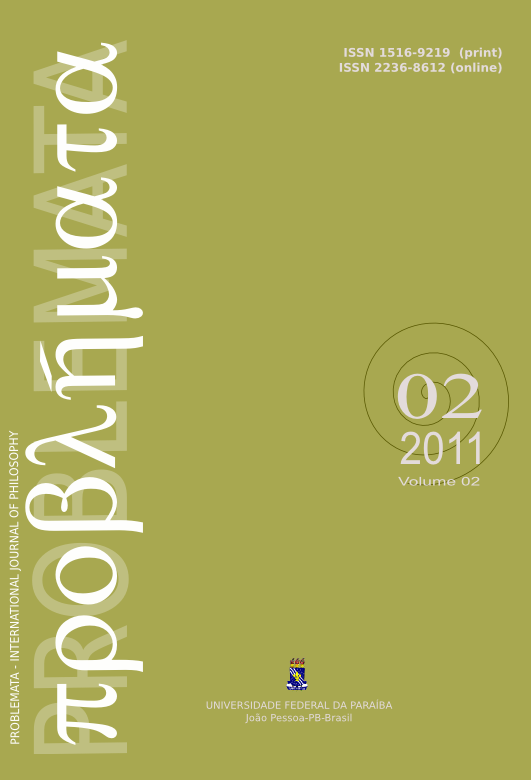ERGÓN AND ARETÉ IN ARISTOTLE'S POLITICAL PHILOSOPHY<a href="http://dx.doi.org/10.7443/problemata.v2i2.10817"><i> <b>[doi: 10.7443/problemata.v2i2.10817]</b></i></a>
DOI:
https://doi.org/10.7443/problemata.v2i2.10817Keywords:
Aristóteles, ergón, areté, logos, polisAbstract
In this paper the categories of ergón and areté will be analyzed as fundamental pieces in order to understand the aristotelian political philosophy. The justification of such an exercise is the centrality that both concepts possess when thinking about the happiness, last purpose (telos) of men’s life. Thereby, the different virtues will be examined, as well as the most philosophical and political edges of the Stagirite’s thought, as a way to comprehend the ideas that he sustained about the good behaviour, the straight behaviour and the human reason. This way, the object of this work is to be able to articulate two aspects that constitute the logos: its participation within the human nature and its dynamic aptitude to canalize and solve the conflicts that found the commom life in the polis.
Downloads
Downloads
Published
Issue
Section
License
Authors who publish with this journal agree to the following terms:
- Authors retain copyright and grant the journal right of first publication with the work simultaneously licensed under a Creative Commons Attribution License that allows others to share the work with an acknowledgement of the work's authorship and initial publication in this journal.
- Authors are able to enter into separate, additional contractual arrangements for the non-exclusive distribution of the journal's published version of the work (e.g., post it to an institutional repository or publish it in a book), with an acknowledgement of its initial publication in this journal.
-
- Authors are permitted and encouraged to post their work online (e.g., in institutional repositories or on their website) prior to and during the submission process, as it can lead to productive exchanges, as well as earlier and greater citation of published work (See The Effect of Open Access).





